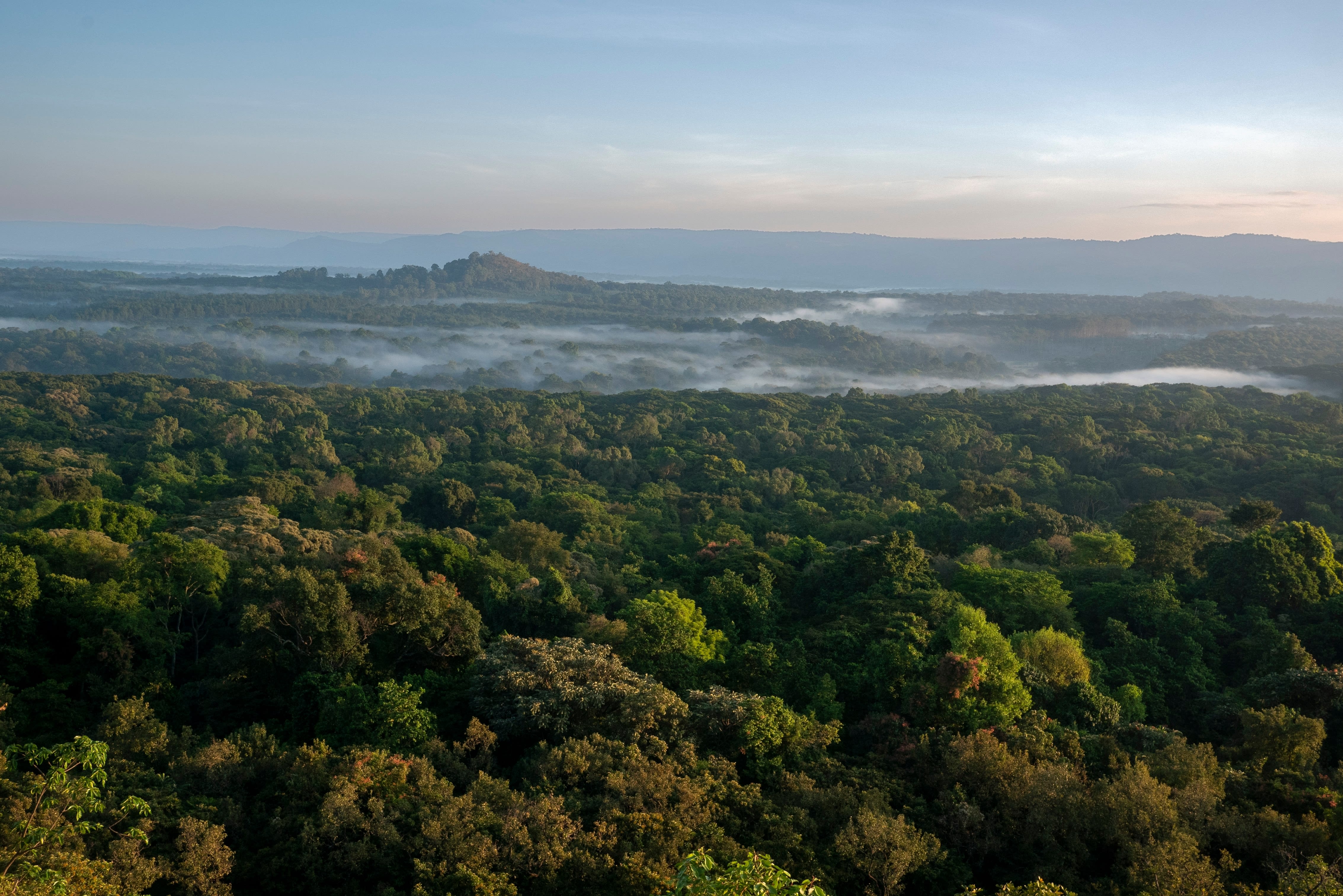Promoting land restoration beyond public forest: The case of Loita Community Forest in Narok County, Kenya
Insights from our work with Kenya Land Alliance in Kenya on the opportunity to strengthen national plans to restore degraded lands by increasing support for community forests
by Washe Kazungu | 2024-04-24

Since 2020, TMG Research has been conducting research under the Global Soil Week project to develop solution pathways to mainstream legitimate tenure rights in national Land Degradation Neutrality (LDN) programmes. The research involves examining the impact of national LDN programmes on the legitimate tenure rights of communities living in or adjacent to areas where LDN measures are being implemented. This analysis, conducted in Benin, Kenya, Madagascar and Malawi, involves a review of national forest management and land governance laws and policies to ascertain the legal basis for legitimate tenure rights, and a case study to examine whether these laws and policies offer sufficient recognition of tenure rights in practice.
The basis of the project was the Land Tenure Decision that was adopted by parties to the UN Convention to Combat Desertification at the Fourteenth Conference of Parties (COP14) in New Delhi, India. This landmark decision that was adopted in 2019 called on countries to apply the principles of responsible land governance and to recognize legitimate tenure rights as they implement measures aimed at achieving the objectives of the convention (such as forest protection and land restoration).
In Kenya, TMG has analyzed the impact of LDN measures on the legitimate tenure rights of communities living adjacent to Kereita Forest (a public/gazette forest in Kiambu County), and communities living adjacent to community forest parcels in Msidunyi, in Taita Taveta County.
The Loita Forest case study was the third case study under the project in Kenya. Loita Community Forest represents a unique case in that it is the largest and best conserved community forest in Kenya. The community living adjacent to the forest depend on forest resources for their livelihoods and subsistence needs and for other ecosystem functions, and the Laibon institution (traditional authority) includes local communities in natural resource management. The community obtains forest resources from forest parcels outside the perceived forest boundary of Loita Forest, and only obtains resources from within Loita Forest during the dry season when the communities from other areas migrate with their livestock to grazing lands within Entasekera (case study area adjacent to Loita Forest). Previous attempts to gazette the forest (to convert it to a public forest that would be under the management of the Kenya Forest Service) were rejected by the community.
The Loita Forest case study reaffirms the position that integration of tenure issues in national LDN programmes involves more than ensuring that national laws are consistent with the Voluntary Guidelines on the Responsible Governance of Tenure of Land, Fisheries and Forests in the Context of National Food Security (VGGT) principles. National laws can only support the recognition of tenure rights as recommended by the Land Tenure Decision if they are effectively applied in areas targeted for LDN measures. In addition to the effective application of laws that are consistent with VGGT principles, successfully integrating tenure issues in national LDN programmes will also boil down to having strong administrative frameworks at the local level. While traditional authorities competently control access and use of forest resources by the community, they may encounter challenges in controlling the forest-related activities of external parties.
In this respect, both government and non-government actors (such as CSOs, CBOs and research organizations) can play a key role in supporting the community to protect and conserve Loita Forest. The support from government actors such as the Kenya Forest Service and Narok County Government should be aimed at ensuring consistency with national forest protection plans. Non-government actors can support the community by building their capacity to champion land and tenure rights issues and by piloting innovations to document tenure rights (such as community-led mapping), and tools that can support communities’ access to justice such as grievance reporting tools.

Community members from Talugo and Olgos villages reviewing maps generated from the mapping exercise at Empuruputia Secondary School on 8 August 2023 (Source: Kenya Land Alliance).
Finally, the successful integration of tenure issues in national LDN plans will require the collection, review and analysis of tenure rights data in LDN priority areas. Kenya’s Ministry of Environment can take advantage of the opportunities presented by the FAO-UNCCD Joint Initiative on Land Tenure, and the second phase of the Land Degradation Neutrality Target Setting Programme to begin defining tenure rights data that should be collected to inform national LDN plans. Tenure rights data should be collected to establish baselines on tenure-related issues in the context of national LDN plans from which the country can monitor medium- and long-term progress.
The case study on Loita Community Forest reinforces the conclusion from the second case study in Kenya – that there is an opportunity to promote land restoration beyond public forests by supporting well-coordinated community-level contributions to LDN and restoration targets in community forests. The first step in realizing this opportunity involves registering these forests as community lands and establishing community institutions that can benefit from targeted support from the Kenya Forest Service, the county government, and non-state actors. This approach will also ensure that land restoration is a community-led activity that can create and support meaningful, sustainable livelihoods while contributing to climate change mitigation and biodiversity protection.
In 2024, TMG plans to highlight the findings of this study and other Global Soil Week case studies conducted in Benin, Madagascar and Malawi to inform the discussions leading up to the sixteenth UNCCD Conference of Parties (COP16), set to take place in Riyadh, Saudi Arabia in December. TMG plans to participate in this year’s Desertification and Drought Day (DDD24) in Bonn, Germany, which will also mark the thirtieth anniversary celebrations of the convention. As a follow-up to the UNCCD’s thirtieth anniversary celebrations, TMG plans to convene a high-level policy dialogue event on land tenure and land degradation in the third quarter of the year. TMG will continue to work with partners and capitalize on these and other key moments throughout the year to ensure national, regional and global discussions on integrating tenure rights in actions to reduce and reverse land degradation, and to address environmental challenges, are informed by the findings of the case studies.
 Urban Food FuturesFeb 09, 2026
Urban Food FuturesFeb 09, 2026Pushing the horizon: Urban farming and community-led innovation in Mukuru informal settlement
A small community-run greenhouse in Mukuru is offering insights into how controlled-environment agriculture can strengthen food security in urban environments under increasing pressure—and a look into the future of food systems in informal settlements.
Christian Sonntag, Emmanuel Atamba, Lumi Youm
 Land GovernanceDec 18, 2025
Land GovernanceDec 18, 2025Land tenure, women’s land rights, and resilience: Reflections from CRIC23 toward UNCCD COP17
Our experts discuss what the exchanges at CRIC23 highlighted and revealed about the role of secure and gender-equitable land tenure in the UNCCD's work ahead of the 2026 triple COP year.
Frederike Klümper, Washe Kazungu
 Urban Food FuturesDec 09, 2025
Urban Food FuturesDec 09, 2025The story of Mukuru's Urban Nutrition Hub
In Mukuru informal settlement, a safe haven for women has grown into the Urban Nutrition Hub, a multi-purpose space for nutrition education, training, and community development, demonstrating the potential of grassroots community-owned innovation..
Serah Kiragu-Wissler


